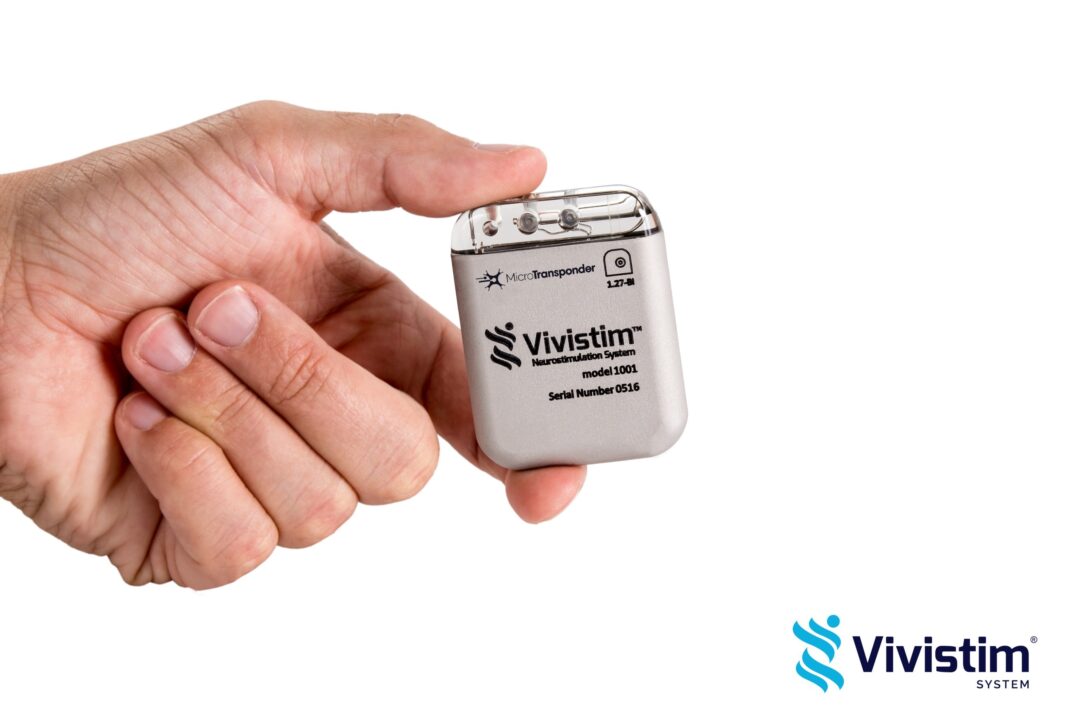MicroTransponder® Inc., a medical device company developing solutions to restore independence and dignity for people suffering from neurological conditions that impair sensory and motor function, today announced that its Vivistim® Paired VNS™ System won the Neurotech Reports Gold Electrode Award for best new product. This announcement comes as MicroTransponder prepares for the first commercial implantation of Vivistim and as the company plans a 2022 sales launch in the United States.
The FDA-approved Vivistim System employs paired vagus nerve stimulation (VNS) that is activated during rehabilitation therapy to improve upper limb function for stroke survivors. Paired VNS therapy generates two to three times more hand and arm function than intense rehabilitation alone after six weeks of in-clinic therapy.
“We’re honored that Neurotech Reports recognized Vivistim as a breakthrough neurotechnology that addresses an unmet need for stroke survivors and their healthcare providers,” said Jordan Curnes, cofounder, president and chief operating officer of MicroTransponder. “As we begin commercialization of Vivistim, we remain committed to helping stroke survivors achieve improvements in their functional mobility while enhancing their quality of life. We are also proud to join the ranks of previous Neurotech Reports award winners, including Axonics®, Inc. and Saluda Medical™.”
The Vivistim System received FDA premarket approval (PMA) in August 2021, following a decade of preclinical research and a successful 108-person, multi-center, double-blinded, randomized controlled clinical trial that was peer-reviewed and published in The Lancet, a widely esteemed medical journal. MicroTransponder has also applied for the CE Mark for Vivistim.
“Our editors selected MicroTransponder’s Vivistim System as the best new product of 2021 because it breaks new ground in stroke neurorehabilitation and helps open the door for funding and commercialization of new neurorehabilitation systems,” said James Cavuoto, editor and publisher of Neurotech Reports, the leading source of news and analysis for the neurotechnology industry.
In preparation for its national sales launch, MicroTransponder is expanding its team and looking to hire experienced medical device professionals for sales, marketing, clinical, quality, regulatory, and operations positions.
